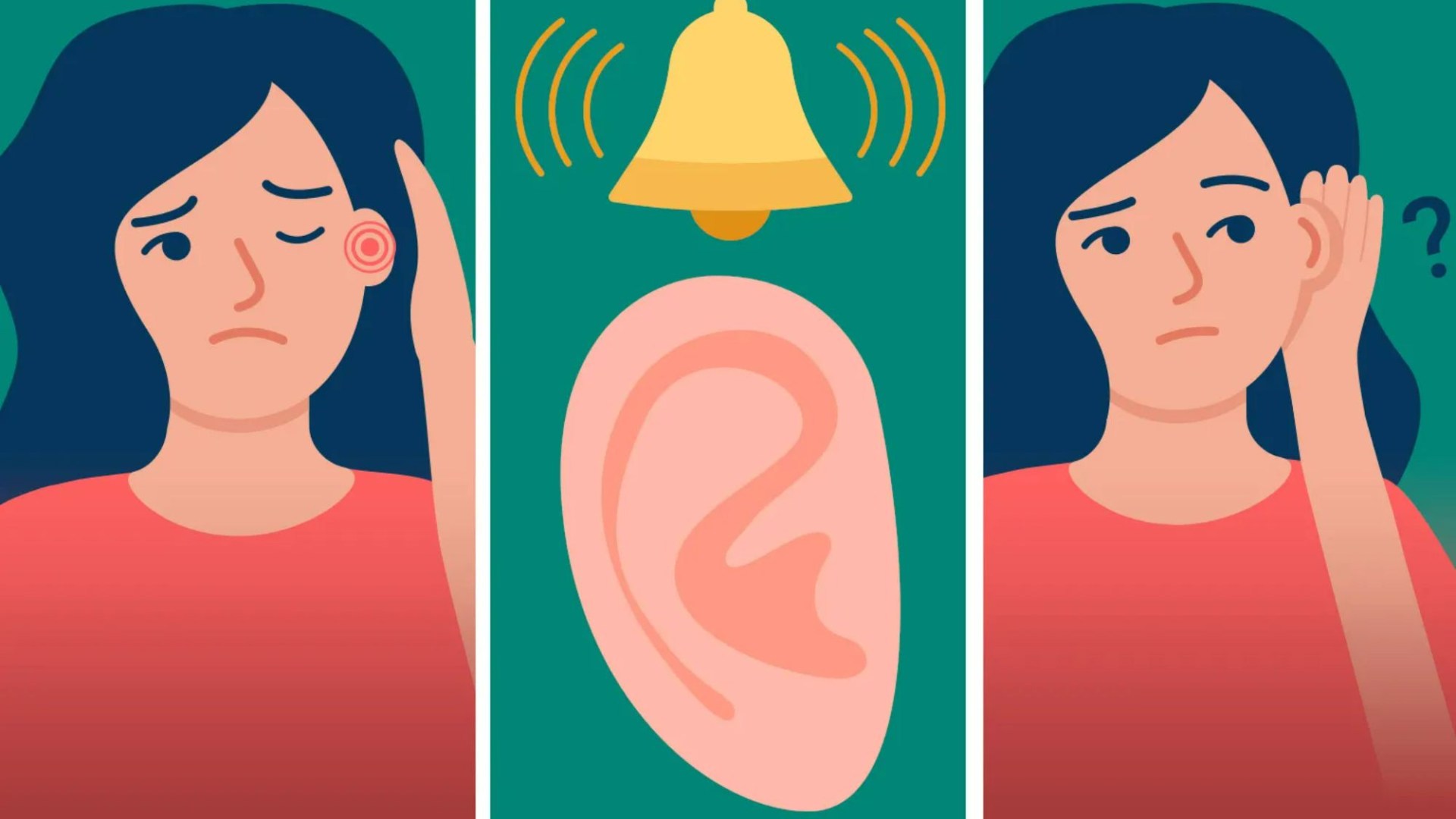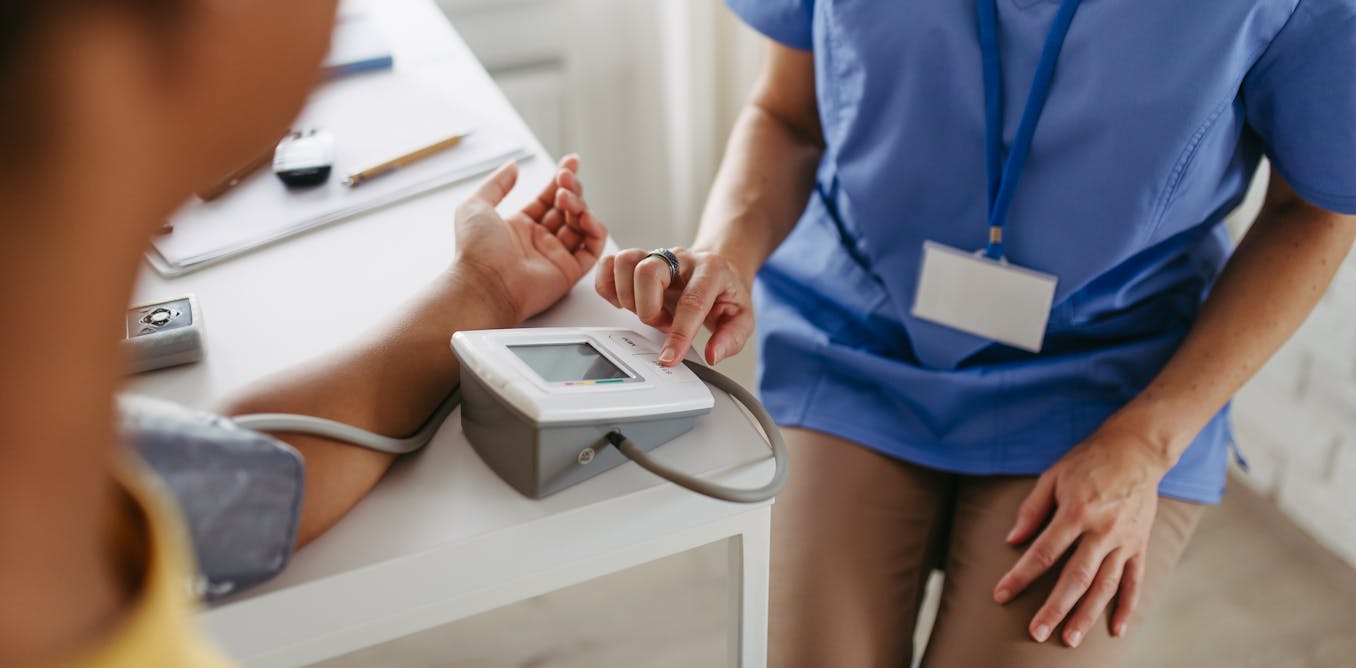THERE are millions of Brits living with type 2 diabetes, a condition caused by persistently high blood sugar levels.
But it’s estimated that 1.2 million people in the UK may not even know they have it.
1
Changes to your hearing may be a warning sign you are living with the condition, an audiologist has warned.
Type 2 diabetes tends to be associated with older people, but it’s increasingly affecting adults under 40, analysis from Diabetes UK shows.
It’s important to manage the condition to prevent long-term damage to blood vessels, nerves and organs.
Type 2 diabetes symptoms can include feeling persistently thirsty, needed to pee more than usual, blurred vision and slow healing wounds.
But you might not expect symptoms of the disease to crop up in your ears.
Rob Ormerod, audiologist at Bayfields Opticians and Audiologists, explains: “The high and low blood sugar levels diabetics suffer from can impact blood flow and cause damage to the blood vessels in your inner ear, affecting the nerve signals received by your ear and impacting ear health in a number of different ways.”
Here are three ways diabetes can show symptoms in your ears…
1. Persistent ear infections
Most of us wouldn’t worry too much about an ear infection because they’re super common and tend to go away after a few days.
But if you’re constantly getting pain and irritation is your ear, it could be a sign of diabetes.
“Diabetics are more prone to picking up ear infections,” Rob explains.
“This is caused by reduced blood flow to your ears, which can in turn reduce the strength of your immune system and ability to fight off infections.”
A high temperature, being sick, a feeling of pressure or fullness in your ear and discharge are some other signs of this common infection.
Rob shares some advice for swerving them if you are prone.
“Following some general best practice guidelines for preventing ear infections such as not putting cotton wool buds into your ear and using earplugs when swimming is important,” he says.
“Bacterial ear infections can be treated with antibiotics but for repeated infections, it’s best to see your GP or pharmacist about the treatment options available.”
2. Tinnitus
Hearing a ringing, hissing or humming sound in your ear that doesn’t seem to be coming from anywhere?
You could be experiencing tinnitus.
“Tinnitus is characterised as a ringing or buzzing in your ears without an external source,” according to Rob.
Some form of hearing loss is often the cause, as well as taking certain medicines or experiencing anxiety and depression, the NHS says.
But chronic conditions like diabetes could also be the culprit behind the whooshing in your ear.
11 little known signs and risk factors for type 2 diabetes
Symptoms of type 2 diabetes can include:
1. peeing more than usual
2. feeling thirsty all the time
3. feeling very tired
4. losing weight without trying to
5. itching around your penis or vagina, or repeatedly getting thrush
6. cuts or wounds taking longer to heal
7. blurred vision
You’re more at risk of developing type 2 diabetes if you:
8. are over 40 years old, or over 25 if you’re from an Asian, Black African or Black Caribbean ethnic background
9. have a close relative with diabetes (such as a parent, brother or sister)
10. are overweight or living with obesity or are not very physically active
11. are from an Asian, Black African or Black Caribbean ethnic background
Source: The NHS
The audiologist explains: “This condition can be triggered by diabetes as the inner ear, or cochlea, relies on oxygen and blood glucose to function effectively.
“With diabetes having a direct impact on glucose levels in the blood due to abnormal insulin levels, this can have an effect on the cochlea and result in tinnitus.
“It’s important to see a specialist if you’re suffering from tinnitus, to ascertain the cause in the first instance, as it could be due to a build-up of ear wax, which can be treated promptly.
“At the point of diagnosis there are a number of treatment options available, including cognitive behavioural therapy and hearing aid solutions.”
3. Hearing loss
You might assume that hearing loss is natural side effect of ageing, but it’s possible that conditions like diabetes could be driving it.
“Research shows that those with diabetes have twice the risk of experiencing hearing loss,” Rob notes.
“Loss of hearing can often be difficult to detect as it tends to happen gradually, but if you’re having trouble following conversations and find you’re turning the volume up on your devices – it may be down to a deterioration to your hearing.
“Rather than increasing the volume, which can actually damage ears and lead to further hearing loss, or withdrawing from social situations, which can lead to loneliness and anxiety, it’s important to get checked out by an audiologist who can assess your hearing and provide appropriate advice and a solution.”
Where can you get your hearing tested?
THERE are numerous places you can go to for a hearing test – from high-street stores to private practices. Here’s our rundown of some of the most popular ones.
Your GP
Your doctor is a good first point of call if you are worried about your hearing. They can offer advice on where to go, but can also do some more tests to see if anything else is going on that’s causing hearing loss.
Specsavers
While they’re most well known for their optical services, Specsavers also do hearing tests. They are also completely free for anyone over 18 years of age. You can check out descriptions of some common ear conditions, as well as booking your test, here.
Boots
Another high-street favourite that offers free, 15-minute hearing assessments. Again, they suggest visiting the GP to rule out any other underlying health conditions. But if you’ve done that and still want to get your hearing checked, visit the Boots website.
Hidden Hearing
Hidden Hearing has hundreds of clinics all over the country, and offers customers a full consultation with a hearing care professional. It also provides the opportunity to try a hearing aid for 60 risk-free days. To find a clinic near you, click here.




